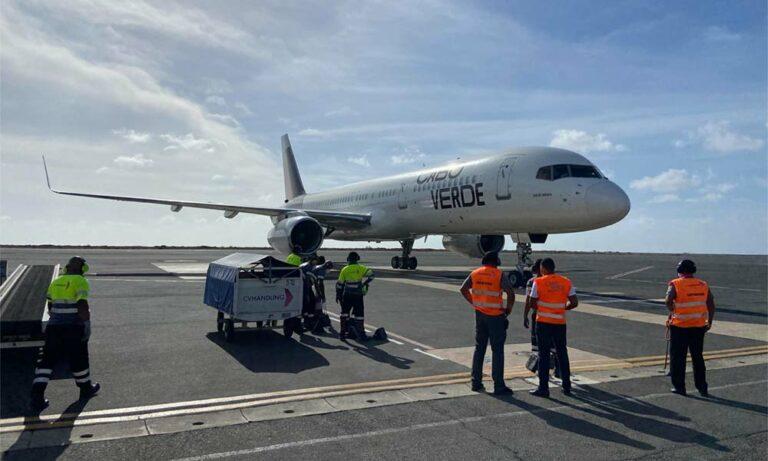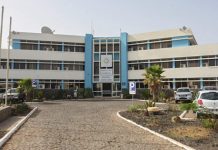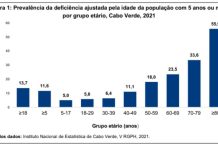Africa-Press – Cape verde. In June, it completes a year since the Boeing 757 D4-CCG was seized from Loftleidir Icelandic, due to debts owed to ASA. The aircraft remains stopped at the Sal Airport sign, accumulating losses, which could be even greater, if the former partner in the privatization of TACV wins the case in court. In 2021 alone, this carrier achieved losses of almost 1.4 billion escudos. The good news is that, although timid, the “return” is happening.
In light of the numbers, and despite some positive signs (see box), TACV remains one of the public companies that drains public money the most, accumulating debts and loans, many of which to pay salaries and suppliers.
In 2021 alone, the year in which the State “renationalized” TACV, getting rid of Icelandic Loftleidir, the losses amounted to almost 1.4 billion escudos. This at a time when the company began to fly timidly, with only one device (rented), since the end of December, last year.
The only plane left of three
After the agreement with the Icelanders was broken in June of last year, among other unresolved issues, one of the three planes leased to the Icelanders remains (immobilized on the runway at Sal Airport). The aircraft remains, in the sun and wind, degrading, it has been one year in June.
According to A NAÇÃO sources, at the beginning of the arrest, some “preservation” work was carried out on the device, every week, and then “long-term” maintenance was carried out. Given that aircraft are made to fly, the longer they are idle, the more recovery work accumulates. This is, therefore, the situation of the aforementioned Boeing.
The aircraft, it should be recalled, had been leased to TACV by Loftleidir Icelandic, having been arrested last June, in view of alleged debts of the company, during the Icelandic management, to ASA, the company that manages the country’s airports.
The process, this one, follows the legal procedures before an international court, which could lead the State to incur more damages, if it loses the process, and, if in addition to having to return the device, it still has to pay compensation.
In the opposite situation is the Icelandic Loftleidir. If you win the stake, you’ll have an extra profit for an old device, waiting to be sent to the junkyard.
TAAG in aid
The other certainty is that TACV continues with a timid recovery, now having TAAG as its main partner. The Boeing-737-700 arrived in Cape Verde on March 14, leased under a “wet leasing” regime for the first two months, that is, aircraft plus crew. The Angolans of TAAG are also responsible for the payment of insurance and maintenance of the device.
But the idea, according to Sara Pires at the time, is that in a second phase the aircraft will operate on a “dry leasing” basis, that is, with the colors of Cabo Verde Airlines, national crew, while the entire service maintenance will be guaranteed by national technicians, as well as the insurance will be in charge of TACV.
mishap
However, TACV has already faced its first mishap with TAAG, whose plane has recently suffered a breakdown. Although fleeting, the breakdown led the Cape Verdean part to resort to a carrier from Croatia, to make a Lisbon/Praia/Lisbon connection, and thus honor the commitments with the passengers. These, by the way, took more than 12 hours to reach their destination, with all the wear and tear that this usually means for those who want to travel in peace and comfort.
good acceptance
Apart from that, according to A NAÇÃO sources, TACV/TAAG flights are having good acceptance in the market, especially on the Praia-Lisbon-Praia route, where occupancy has been above 90%.
Also in relation to the São Vicente/Lisbon/São Vicente route, the occupation is “reasonable”, between 75 and 80%.
Less impact has been had on the Sal-Lisbon-Sal route, where occupancy is between 40 and 50%.
It should also be noted that, at the moment, the company already has a six-month schedule for these routes.
In the latest forecasts announced by TACV’s PCA, as of July the company plans to double the number of flights to Lisbon, from Praia, São Vicente and Sal, it is unknown, for now, with how many planes.
At the end of December, after the extraordinary general meeting, Sara Pires had also advanced the resumption of flights between Praia and Boston (United States of America), in the second quarter of this year. A route currently provided by SATA and TAP, which took advantage of the market opportunity to impose their prices.
The forecast of that manager, at the time, is to have a new device in the second quarter of this year allocated to TACV and three by the end of 2023, to give flow to the routes.
From endorsement, in endorsement, Government tries to keep company standing
After more than 12 billion escudos in guarantees and guarantees granted to TACV before the renationalisation, on 6 July last year, the Government continued to inject money into the company to prevent the general collapse and pay salaries, as a way of maintaining live the flame of the ongoing recovery.
In February this year, the Executive authorized another public treasury guarantee for TACV’s loan from Caixa Económica de Cabo Verde, in the amount of 165 million escudos, as published in the Official Bulletin on 27 February.
The new injection made it possible, at the time, to pay the salaries of TACV workers for January of this year.
In practice, the Resolution of the Council of Ministers establishes that the guarantee is valid for 12 months and, according to the same Official Bulletin, there is another resolution that reports for another 8 months the guarantee of the previous loan, in the amount of 100 thousand contos in the same bank, Caixa Económica.
It is recalled that in March 2019, the State sold 51% of TACV shares for US$1.5 million to Lofleidir Cabo Verde. At the time, the Cape Verdean State held 39% and 10% were offered for sale to Cape Verdean emigrants, with businessman Victor Fidalgo being the largest shareholder in that 10% share.
However, due to alleged non-compliance by the Icelanders, the State decided to rescue the company, so to speak, renationalizing TACV by recovering 51% of the company’s shares, becoming the majority shareholder, again, with all the costs, concerns and challenges that the company entails, continuing with a heavy human resource load.
Still on the financial situation of TACV, see the article “State companies at high fiscal risk”, on page 4 of this issue.
For More News And Analysis About Cape verde Follow Africa-Press






